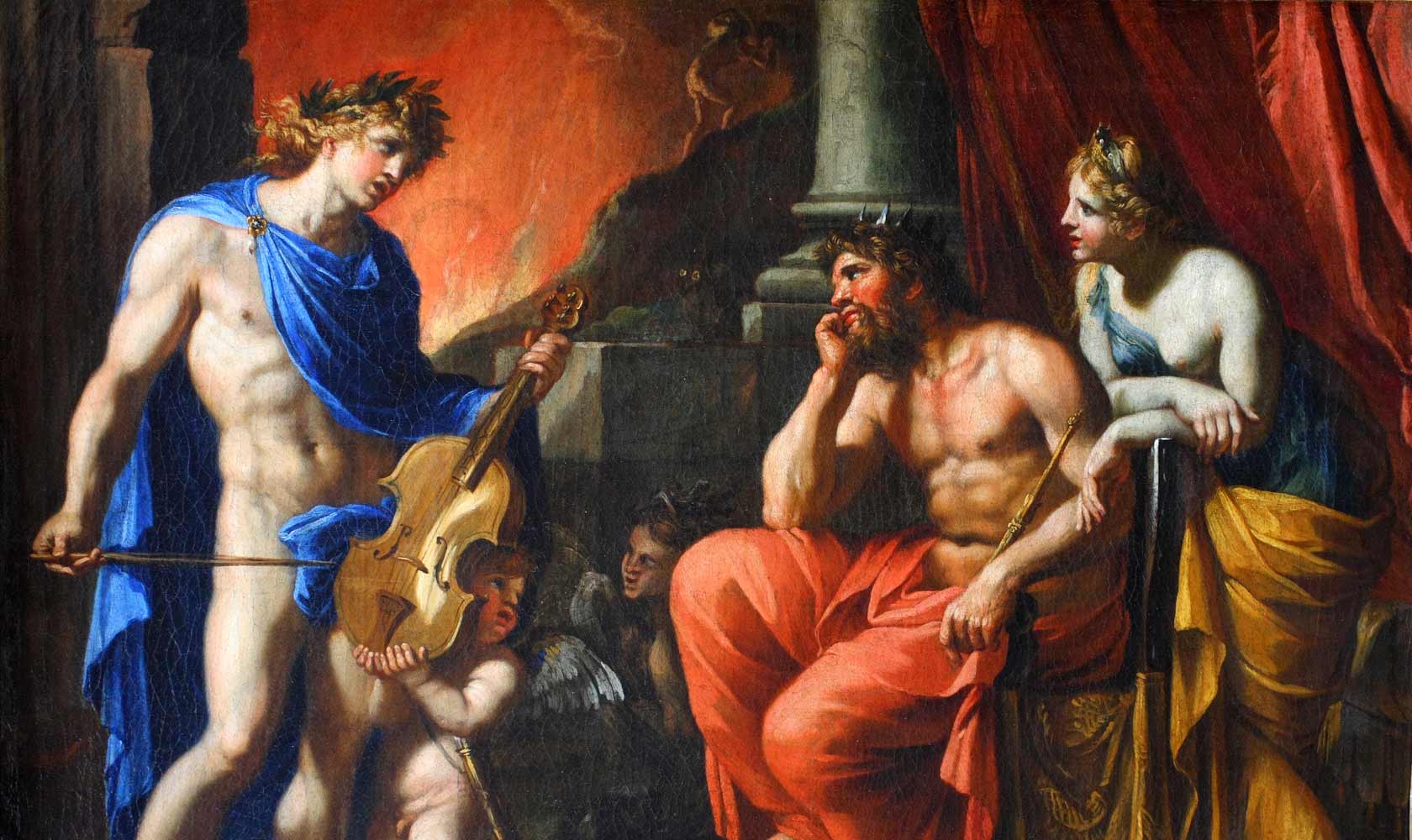Professional musical life has been beset by jealousies, petty grievances, and unfounded gossip for over three centuries. When musicians began gaining power in courtly and civic positions in the 17th century, the more envious and ambitious intrigued and machinated in order to promote their own interests or shore up their own reputations. One of the most ruthless was Jean Baptiste Lully. Here was a musician who could backup his ambitions with formidable artistic credentials; nevertheless, the man was a tyrant. He rose quickly as a rank-and-file member of Louis XIV’s court orchestra to become musical composer to the king. By 1674, Lully had a monopoly over all opera productions in France. No other production could be mounted without Lully’s express permission. Thus did the Italian-born violinist dominate French musical life until his death in 1687.
 Orpheus before Pluto and Proserpine by François Perrier, 1645
Orpheus before Pluto and Proserpine by François Perrier, 1645
One such composer who was forever the victim of Lully’s collusions and influence was Marc-Antoine Charpentier, 11 years younger than his powerful colleague. Charpentier was a native Parisian and was deeply impressed with music of the Italian peninsula. He studied there for a time in the late...










Comments
Log in to join the conversation.